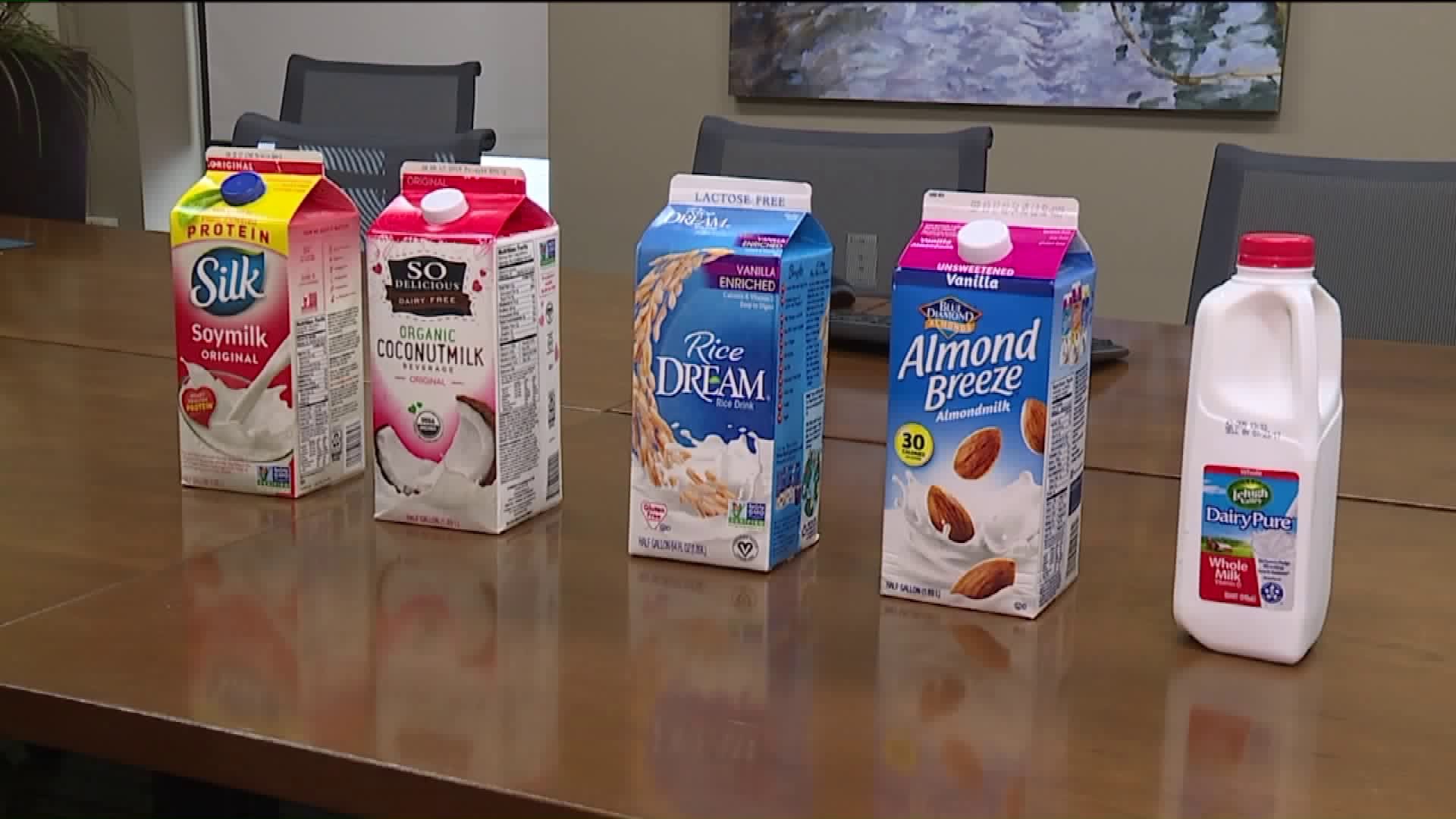SCRANTON -- Food can most certainly make you sick, and it can also be medicine, so it's no surprise that many of us are on the lookout for food news -- what's good, what's bad, what's new.
It seems we're fairly well versed on the foods we should avoid, or at least limit: processed foods, fried foods, the list goes on.
But what's healthy is harder to define.
"There's really not one recommendation for anyone," said Nicole Coppola, a clinical dietitian with Geisinger Community Medical Center in Scranton.
Coppola is speaking specifically about milk substitutes, which have become a growing market. She points out soy milk and rice milk have been around a while, but lately, there's no shortage of nut milks, such as coconut, cashew, or almond milk.
"I think probably over the last five years or so it has become more mainstream. A lot of people have dairy allergies or sensitivities to lactose and are looking for alternatives."
Coppola says milk substitutes are useful for patients who are looking to cut out dairy for any number of reasons, but they are not created equal.
Soy milk is the highest in protein. Coconut milk is typically creamier than rice milk but also contains saturated fat. Almond milks are popular with her cardiac patients. In any case, it's important to watch for added sugars.
"I always tell my patients to look for items that are fortified with calcium and vitamin D at the very least. Those are the two nutrients you get from dairy products," Coppola advised.
"Everybody has individual needs. If someone starts to put a lot of pumpkin seed oil into their diet, it doesn't mean it'll be some magic cure to prevent disease," said Samantha Cortese, a registered dietitian and nutritionist, who met with us to talk about oils.
Coconut oil is popular these days. It has a great flavor, and she says if you like it, use it with this caveat.
"One of the concerns I have it that it is primarily saturated fat," Cortese said. "It is solid at room temperature. Saturated fats are solid at room temperature. An abundance of them increases risk for cardiovascular disease."
And remember what a serving size of an oil looks like, even heart-healthy olive or avocado oil.
"That little tiny teaspoon, though it has heart-healthy benefits, that has about 45 calories," Cortese said.
Dietitians say you need to be wary of what you read online, sometimes it's from a reliable source but not always. If you have questions about what foods or drinks are best for you, it's best to check with your doctor who knows your medical history or can refer you to an expert.

